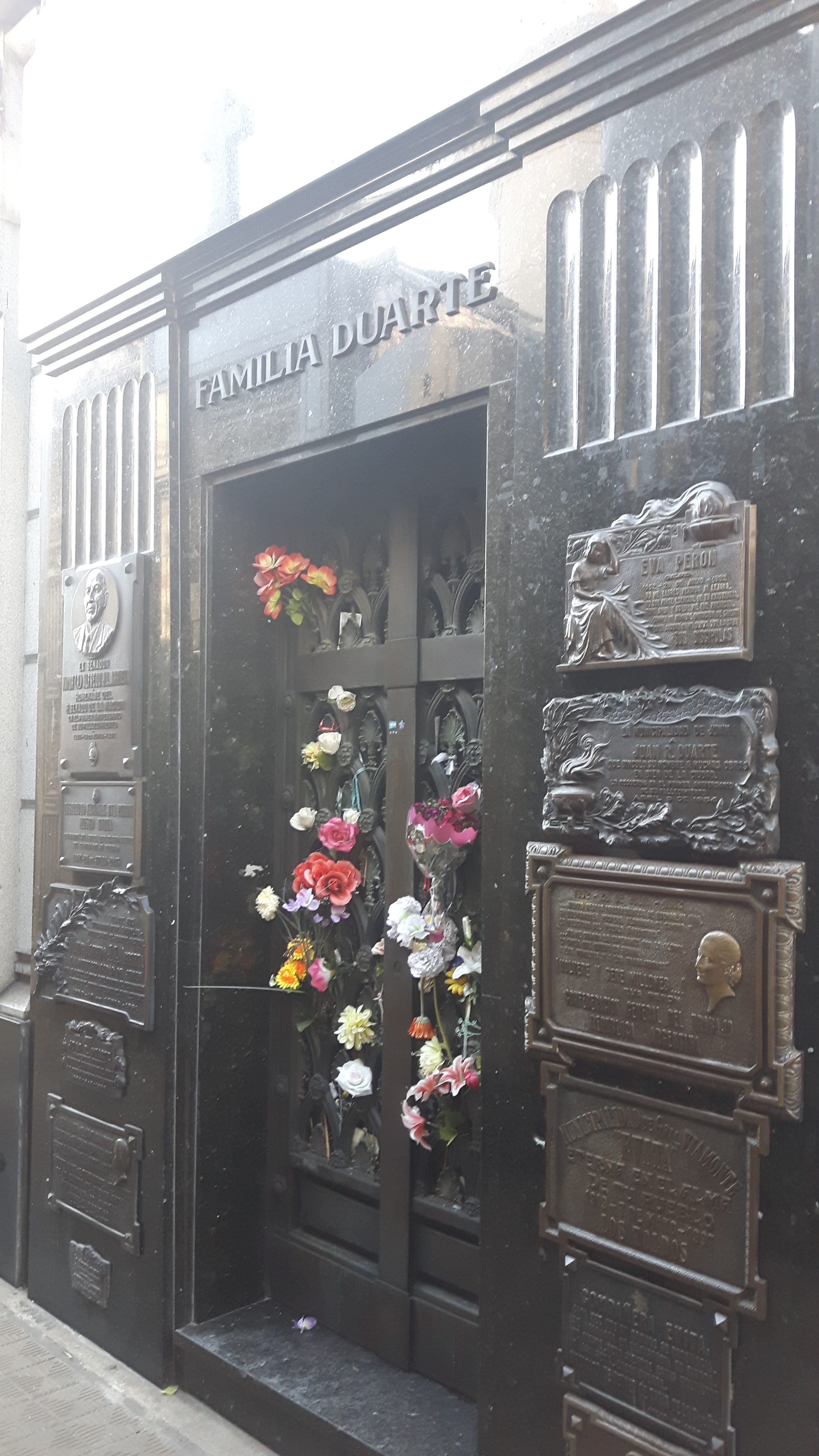Unfortunately, as an Argentine-born, this is a topic that I can say very little about from an objective and untainted point of view.
A couple of things that are worth noting about the Peron’s but primarily about Evita is that she is STILL romanticized and adored today. Many people make the ‘pilgrimage’ to her family’s mausoleum in the elite and illustrious Recoleta Cemetery in Buenos Aires (worth the trip if you’re down there- see picture attached). The mausoleum is still decorated with flowers from visitors and tour guides make a point of telling you the Duarte’s are buried there. She is also on both sides of the Health Administration building of Buenos Aires. It is said that she is ‘speaking to the people’ facing the North of the city, where the wealthier part of the city is and she is smiling to ‘her people’ to the South of the city. This building is in the smack middle of downtown Buenos Aires in the middle of the second-widest avenue in the world, 9 de Julio.
As for the documents this week, I think they really highlight just how varied versions of the same ‘scene’ can be. We will probably never know verbatim what was said during her speech, but it is clearly not for a lack of trying. I believe that no one runs for or marries into politics if they do not want some sort of attention from it, whether it be to get recognition for themselves or the causes they claim to represent.
I think the whole conversation we had in class about ‘heroes’ is really pertinent to his discussion about populism and Eva and Juan Peron. It was said that heroes are often considered heroes because they die before they can be considered anything else. I believe that is exactly what happened to Evita. She died in such a devastating and dramatic way, gave her final speech before the nation while needing to be held up by Juan, and the mysticism around her embalmed body allowed for her to never become anything else but a national hero (for some).
Juan on the other hand, got to live quite a contradictory life that became highly scrutinized simply because he lived longer…and because he really was a living contradiction. However, I wonder what would have happened with Evita’s reputation if she had not died in such a tragic and publicized manner? Would the Peron’s live on to be just another President and First Lady of Argentina? Would their corrupt actions be swept under the rug (like so many before and after them-regardless of Party) and just become the Argentine norm?




I think it’s interesting that you speak about the romanticization of Evita’s legacy – though I am not trying to take away from the good that she did, she is remembered from an extremely positive lens that seems to create an illusion that she was exceptional, when she was only human (albeit a great one in the eyes of some). I particularly liked the connection you made to last week’s material about how heroes are only heroes because they die before they are able to disappoint the people/fall off of their pedestal which I think definitely applies to the way in which Evita is remembered. While I don’t think there is really any concrete answer to your question, I think Evita would be less immortalized within Argentina if she had died later in a more private manner.